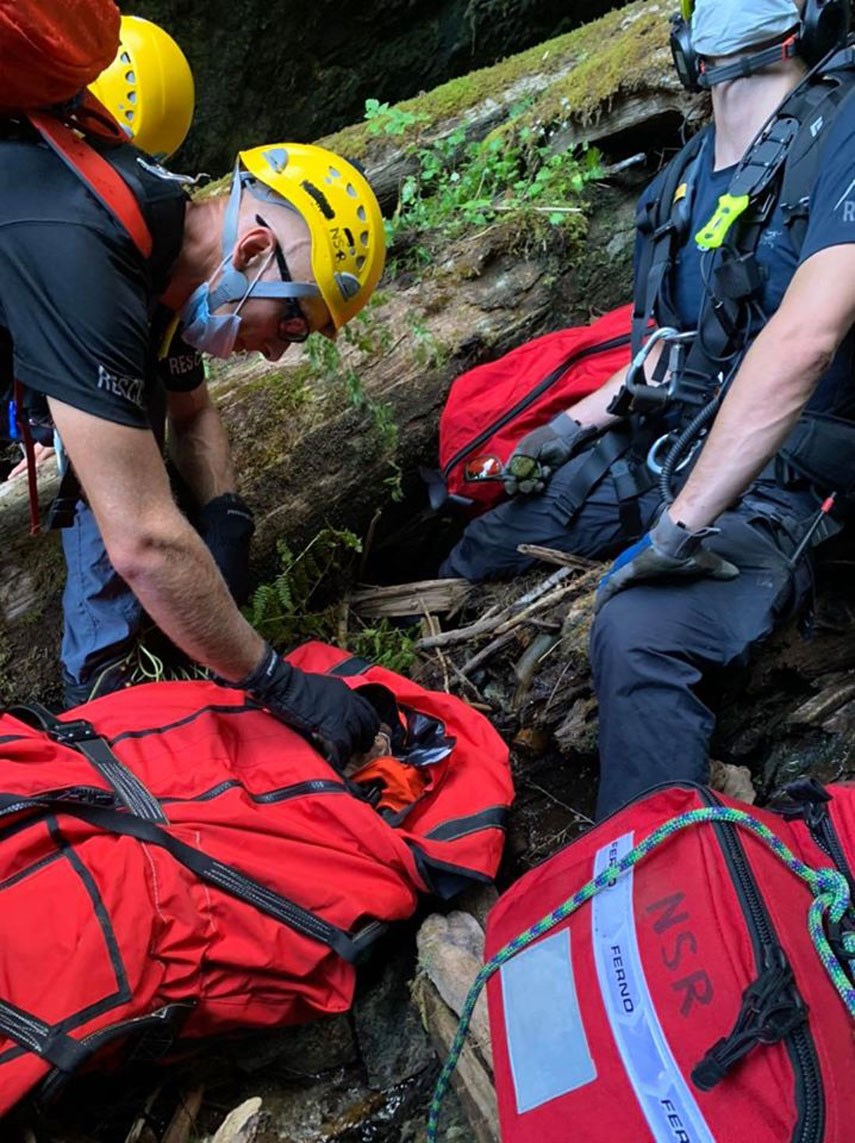B.C.’s 80 volunteer search and rescue teams will get sustainable funding from the province for the first time in their history, but North Shore Rescue’s team leader says his team must still go hat-in-hand looking for donations to keep saving lives.
The province already covers the operational costs for the 2,500 professional volunteers. Starting in 2022, the government will make $6 million per year available to the BC Search and Rescue Association, the umbrella group for the province’s 80 professional volunteer ground search and rescue outfits. The new funding will help cover the costs of equipment, training and administration.
“That $6 million will continue as a line item in the budget and so they're not going to have to be coming every year saying, ‘Are we able to get funding this year?’” said Public Safety Minister Mike Farnworth, during Tuesday's announcement. “They will be able to count on long-term, stable funding, which is something they have been after for many, many years.”
North Shore Rescue team leader Mike Danks said he expects his team will see about $100,000 to $200,000 per year when the funding kicks in, which is welcomed.
But Danks added the organization will still have to come up with about $300,000 over and above that per year to cover increasingly costly helicopter rescue training and other equipment needs.
“I think we're very appreciative. BC SARA has been fighting the battle to get the funding in place,” he said. “It's really nice to have, but it doesn't meet what we need. Our biggest fear is that people are going to think that we're taken care of and we forget, and that's just not the case at all.”
North Vancouver-Lonsdale MLA Bowinn Ma said she hopes the additional funding will help ease some of the anxiety that comes with additional fundraising and administrative burdens the teams face.
“North Shore Rescue volunteers do incredible work for us. They're constantly putting their own lives at risk to save others and I think our community is very, very proud of them,” she said.
Barely an hour after the announcement, Danks and his teammates were putting that training to use, carrying out one of the most technically challenging rescues of 2020.
Around 4 p.m. North Shore Rescue and District of North Vancouver Fire and Rescue Services received a call reporting that a woman had serious injuries after falling 10 metres into Hydraulic Creek, a tributary of the Seymour River.
“We right away got a physician rolling. We got up in the helicopter as quick as we could. [DNVFRS] was responding from the Seymour Valley,” Danks said.
They could spot the injured woman and her fellow hikers from the helicopter but the tall timbers and fast-flowing creek would make the area incredibly difficult to access quickly. They rigged up a 250-foot long-line and the Talon pilot nimbly lowered a rescue team in through a hole in the trees.
“You just really, you have to do your best in those situations. It's not like picking up a patient off a road,” he said.
Danks and the team quickly packaged up the woman and delivered her to BC Ambulance Service paramedics who were waiting at Inter River Park.
“I think all the stars aligned for this one. It was a multi-agency response, for a multi-trauma patient. We're talking about potential fractured ribs, fractured pelvis and internal injuries, hypothermia. I can say with confidence that this woman's life was saved,” Danks said.
The number of rescue calls has shot up in recent weeks, thanks largely to inexperienced hikers heading into areas they are ill-prepared to get themselves out of, Danks said.
“We just have people that are so keen to get out, and they're just pushing the limits and I think they're pushing them a little too quickly,” Danks said. “Once you're off-trail, and you're getting into terrain that is unsafe for you, that's when you need to stop and make that phone call. … We can come get you.”



